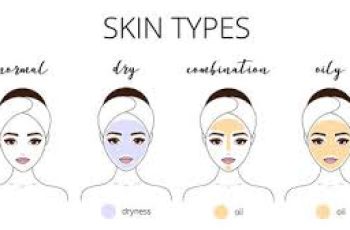
How to Safely Use Denatured Alcohol in Your Home
Denatured alcohol is ethanol or alcohol that has an added toxic chemical, which makes it unsafe for humans to consume it. In most cases, 5-10% methanol is added to the alcohol to make it bad tasting. You’ll often find this ingredient in cleaning products and cosmetics.1
While isopropyl (rubbing) alcohol and denatured alcohol can be confused with each other, they are not the same thing and have different chemical compounds. Denatured alcohol is toxic and flammable, so it’s important to know how to use it safely.1
Uses of Denatured Alcohol
Denatured alcohol was developed during the Prohibition era when the United States government began adding methanol to industrial alcohol in an effort to deter people from drinking it. However, their efforts backfired.2
In 1926, when the “Noble Experiment” of adding poison to alcohol was first implemented, people chose to drink the concoction anyway, especially during the holidays, and then suffered the consequences. Twenty-three people died in New York City alone that year, and many more were left permanently blind. The experiment was eventually repealed seven years later, but historians estimate that before that occurred, 10,000 people died from drinking denatured alcohol.2
Despite its less-than-desirable beginnings, today, denatured alcohol is used in a variety of different ways, and its consumption is not as frequent—though it does still occur.3 Here are some ways people use denatured alcohol in the modern era:45678
Home cleaning and disinfection: Because denatured alcohol has antimicrobial properties, it can be mixed with water and used to clean a variety of surfaces in your home. It will help eliminate grease and paint and reduce mold and mildew.
Medical cleaning and disinfection: Denatured alcohol is often used to clean and disinfect hospital surfaces, such as surgical room equipment or patient room counters. Evidence suggests it can kill E. coli, cold viruses, and norovirus.
Fuel source: Camping stoves and other small devices can use denatured alcohol as an inexpensive fuel source.
Cosmetics: When used in cosmetics, denatured alcohol is often listed as “alcohol denat” or “specially denatured (SD) alcohol.” Manufacturers put denatured alcohol in cosmetics because of its drying abilities.
Household products: Denatured alcohol is also an active ingredient in several household products, such as window cleaners and de-icers.
Preserving specimens and samples: Denatured alcohol is often effective in helping to preserve different organisms, which is particularly useful to scientists who work in research labs.
Hand Sanitizers and Denatured Alcohol
During the height of the COVID-19 pandemic, the Food and Drug Administration (FDA) allowed companies to use denatured alcohol to make hand sanitizer. However, this permission was only temporary and the FDA has since ordered that all companies stop producing hand sanitizer products with denatured alcohol by December 31, 2021.9
Differences Between Denatured and Isopropyl Alcohol
Although denatured alcohol and isopropyl alcohol can be used in similar ways, they have different chemical makeups. Denatured alcohol is ethyl alcohol or ethanol that contains toxic additives like methanol that make it unfit for human consumption.1
Isopropyl alcohol (also called rubbing alcohol) is usually found in 70% concentration and is not as toxic as denatured alcohol. However, it can still be dangerous, especially for young children, if you drink it. In fact, it is the most common type of toxic alcohol ingestion reported to Poison Control each year.10
Risks of Poisoning
Poisoning from denatured alcohol usually occurs as a result of accidental ingestion, though some people deliberately drink denatured alcohol, often due to substance use disorder (SUD). When this happens, the consequences are dire.3
Drinking as little as 10 milliliters (mL), or about two teaspoons, of methanol (often found in denatured alcohol) can cause permanent blindness. Drinking 100-200 mL (or 3 to 7 ounces) is fatal. The gastrointestinal (GI) tract can quickly absorb methanol—usually in 30-60 minutes. As such, complications can occur fast.3
When treating poisoning in the emergency room, it can often be challenging to differentiate methanol poisoning from the normal effects of drinking alcohol. It can take 12-24 hours to determine methanol intoxication, especially if the person is exceptionally drunk and sleeping.3
Disposing Denatured Alcohol
Denatured alcohol, whether in its original form or as part of a paint solvent, shellac, de-icer, expired hand sanitizer, or household cleaning item, is considered a hazardous waste and carries some risk of poisoning.
Do not pour denatured alcohol or products that contain it down the drain. They can interact with the vapors in your water pipes and sewer systems, leading to fires and explosions. These products can also contaminate septic tanks or wastewater treatment systems. Instead, wrap the container and place it in a trash can for garbage collection.11
Safety Considerations
If you have denatured alcohol in your home, or if it’s an ingredient in another product that you use, it’s important to take precautions when using and storing the liquid. Here are some tips for safely using it in your home:12
Keep it away from open flames: Denatured alcohol is highly flammable, so you need to avoid smoking around it and keep it away from open flames.
Make sure you have proper ventilation: Inhaling fumes from denatured alcohol can cause headaches and dizziness, so make sure you open a window if you’re cleaning something with it.
Do not ingest it: Denatured alcohol is toxic, and ingesting it can result in blindness or even death.
Wear protective eyewear and gloves: Denatured alcohol can irritate the eyes and skin, so it’s important to take the proper precautions when using it.
Store it in a safe and secure location away from children: Because denatured alcohol is flammable and highly toxic if ingested, it’s important to pick a safe and secure location for storage. It should be in a cool, dry place where children cannot access it.
When to Contact a Healthcare Provider
If you or a loved one accidentally (or even intentionally) ingested denatured alcohol, it’s important to get emergency help right away. Call poison control or 911 and head toward the nearest emergency room.
Researchers indicate that within one hour of drinking it, people may feel nauseous, vomit, and have stomach pain. Headaches, dizziness, and blurred vision also are common.3 Some people may also experience drowsiness, confusion, and ataxia (inability to coordinate muscle movements).13
That said, do not assume that if there are no symptoms initially, there isn’t an issue. It’s also possible that a person may not experience symptoms right away. However, the more time you wait between exposure and treatment, the worse the toxicity gets and the higher the risk of serious complications.13
A Quick Review
Denatured alcohol is alcohol that has an added toxin (such as methanol) to make it bitter-tasting and dangerous for human consumption. Instead, the ingredient is found in several cleaning, household, and cosmetic products.
If you use denatured alcohol in your home, keep safety at the top of your mind. Be sure you’re storing it safely, wearing protective clothing and eyewear, and keeping it away from flames. If you or a loved one ingests it, get medical attention immediately, as serious complications can occur without treatment.


